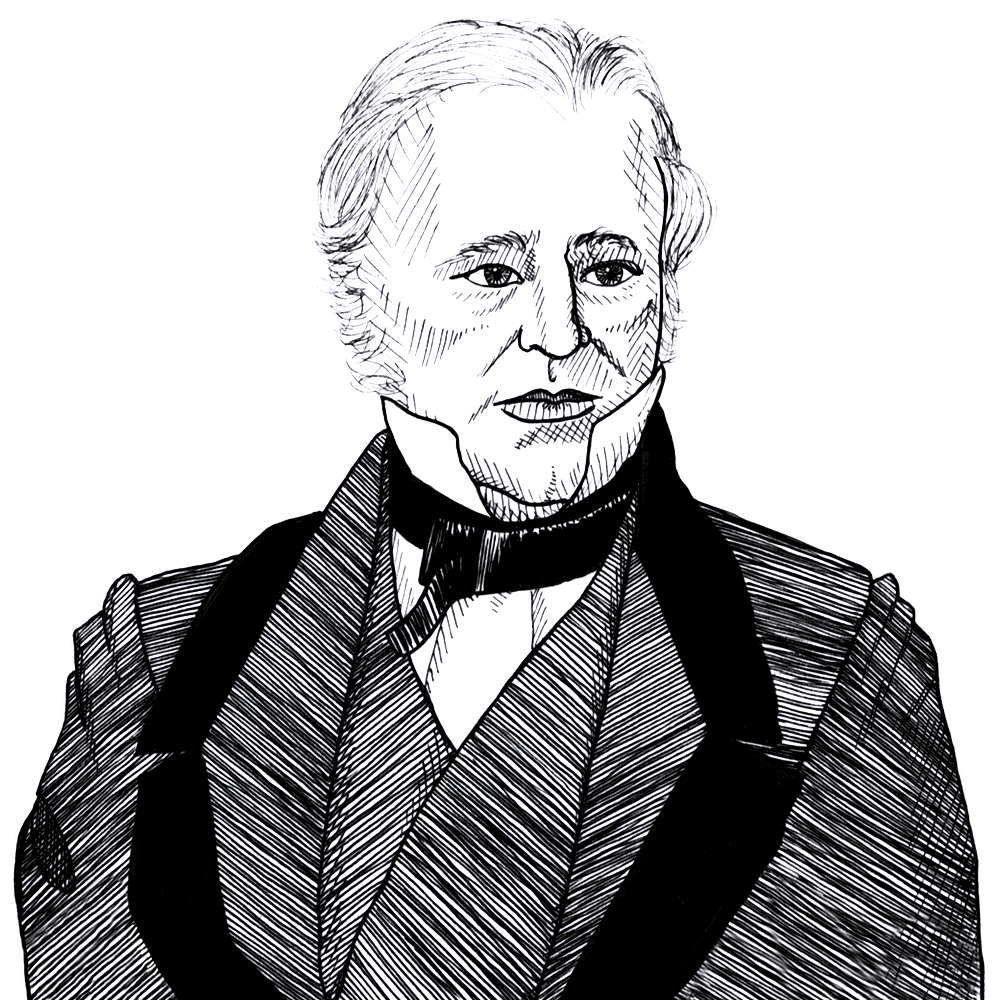
Macaulay argues that “the main end” of government is the protection of persons and property (1839)
Found in: Critical and Historical Essays, Vol. 2
In a review of book by William Gladstone, Thomas Babington, Lord Macaulay (1800-1859) provides a clear statement of the very limited powers of the state which was commonly held in Victorian England, namely that the state tend to “the protection of the persons and property of men” with very few exceptions:
The State
We consider the primary end of government as a purely temporal end, the protection of the persons and property of men.
We think that government, like every other contrivance of human wisdom, from the highest to the lowest, is likely to answer its main end best when it is constructed with a single view to that end. Mr. Gladstone, who loves Plato, will not quarrel with us for illustrating our proposition, after Plato’s fashion, from the most familiar objects. Take cutlery, for example. A blade which is designed both to shave and to carve will certainly not shave so well as a razor, or carve so well as a carving-knife. An academy of painting, which should also be a bank, would, in all probability, exhibit very bad pictures and discount very bad bills. A gas company, which should also be an infant school society, would, we apprehend, light the streets ill, and teach the children ill. On this principle, we think that government should be organised solely with a view to its main end; and that no part of its efficiency for that end should be sacrificed in order to promote any other end however excellent.